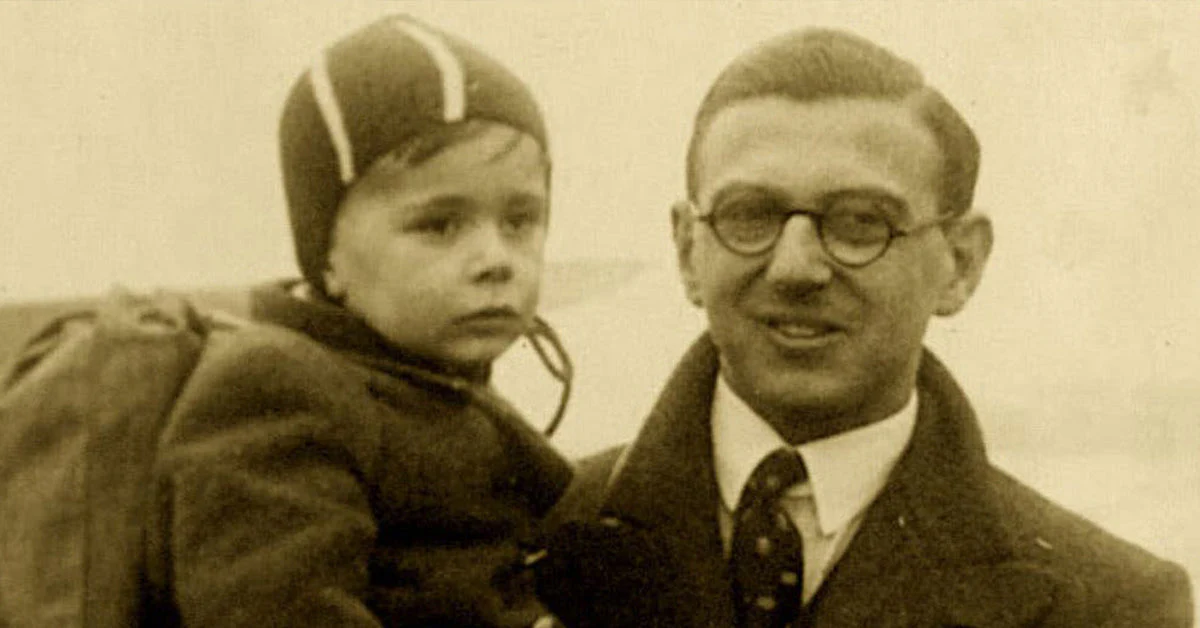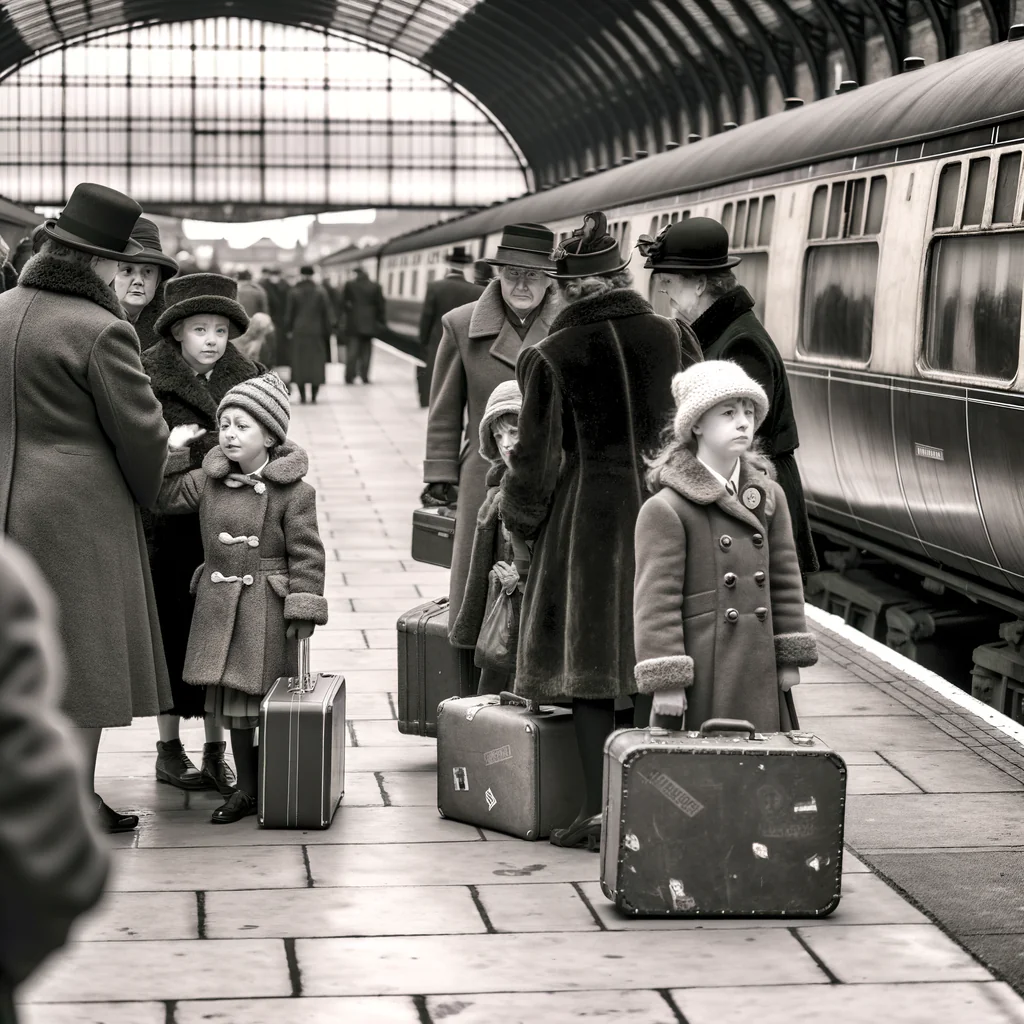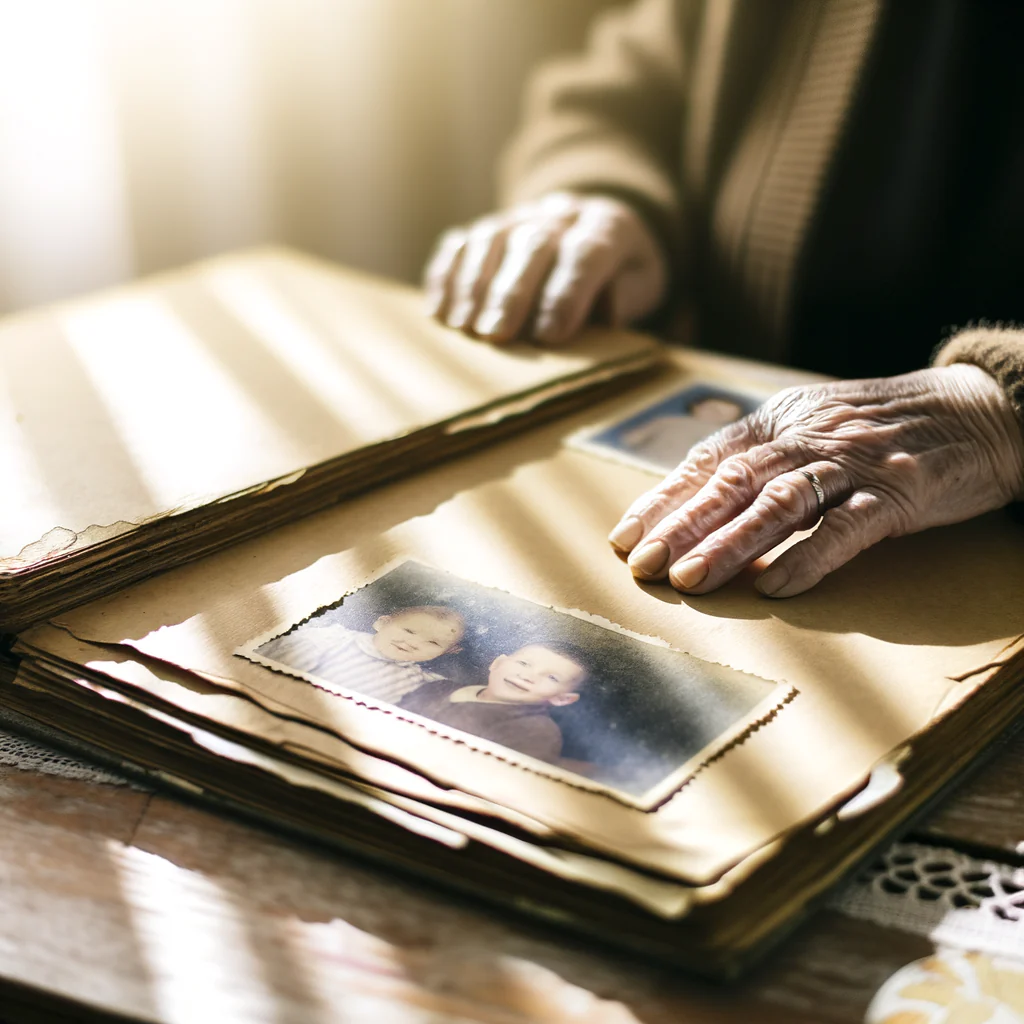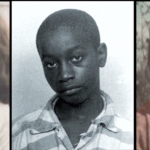Nicholas Winton: The Man Who Secretly Saved 669 Children From the Holocaust

In a world overshadowed by war and hatred, one man’s quiet compassion became a lifeline for hundreds of children.
His name was Nicholas Winton, a young British stockbroker who, without seeking fame or recognition, rescued 669 Jewish children from the horrors of the Holocaust.
For nearly five decades, no one — not even his closest friends or family — knew what he had done. His remarkable story only surfaced by chance, revealing not only an act of immense bravery but also the extraordinary power of human kindness in the darkest of times.
A Ski Trip That Never Happened
It all began in December 1938, on the eve of World War II. Nicholas Winton, then 29 years old, was preparing for a relaxing ski vacation in Switzerland when he received an unexpected phone call from a friend, Martin Blake.
Blake, working with a refugee aid organization, pleaded with him to come to Prague instead. The city was overwhelmed by Jewish refugees fleeing from the Nazi annexation of the Sudetenland.
Without hesitation, Winton changed his plans. What awaited him in Czechoslovakia would change his life forever.

A City on the Brink of Despair
When Winton arrived in Prague, he was confronted by scenes of unimaginable suffering. Families were huddled together in makeshift camps, shivering in the cold, clutching what few belongings they had left. Children cried quietly, clinging to their parents as soldiers patrolled the streets.
The sense of fear was palpable — everyone knew the Nazis were advancing, and the world seemed unwilling to help. Many European nations had already closed their borders. Hope was fading fast.
But where others saw despair, Winton saw a narrow path to hope.
Britain had agreed to accept child refugees under certain humanitarian conditions. It wasn’t much — but to Winton, it was a chance to save lives.
The Birth of a Rescue Mission
Working with a small group of volunteers — including Trevor Chadwick and Bill Barazetti — Winton set up a makeshift office in his hotel room. A single desk, a typewriter, and a heart full of determination were all he needed to begin.
He started compiling lists of children, taking photographs, and gathering documents from parents who were willing to let their sons and daughters go. Many of these parents understood they might never see their children again. Still, they came — hundreds of them — carrying their children’s names written on scraps of paper and photographs tucked in trembling hands.
Every meeting was filled with pain and courage intertwined. Mothers wept quietly, fathers tried to remain strong, and children stood confused, not understanding why their parents’ eyes were full of tears.
“I will take care of them,” Winton promised. And they believed him.
Against Bureaucracy and Time
What Winton attempted was nothing short of a miracle. He had to find British foster families, secure visas, organize train routes, and negotiate with hostile governments — all while time was running out.
When the British Home Office delayed visa approvals, Winton refused to give up. Instead, he and his team forged documents to ensure the trains could depart on time. He later admitted this without regret:
“Sometimes, you must break a rule to do what’s right.”
Between December 1938 and August 1939, eight trains left Prague, carrying children who would otherwise have faced almost certain death in Nazi concentration camps. Each journey was a triumph of compassion over cruelty.

The Train That Never Came
A ninth train was scheduled to leave on September 1, 1939 — the very day Germany invaded Poland and World War II began. That train never departed.
Two hundred and fifty children were on the list. Their parents had packed their small suitcases, kissed them goodbye, and waited for news that never came.
For the rest of his life, Winton mourned those children. “If the train had left a day earlier,” he once said quietly, “it would have come through.”
That single sentence carried a lifetime of grief.
The Secret Hidden for Half a Century
After the war, Nicholas Winton returned to London, married, and lived an unassuming life. He never boasted about what he had done. When he ran for local office in 1954, he mentioned his rescue work in just one line of his campaign leaflet.
It wasn’t until 1988, nearly fifty years later, that his secret came to light. His wife, Grete Gjelstrup, was cleaning their attic when she discovered a dusty scrapbook filled with photographs, letters, and lists of children’s names.
Grete was astonished. “You can’t keep this to yourself,” she told him. “These are children’s lives.”
She handed the scrapbook to a Holocaust historian, and soon after, Nicholas Winton was invited to appear on the BBC television program That’s Life!
During the broadcast, the host asked if anyone in the audience owed their life to Winton. One by one, people stood up — dozens of adults who, as children, had escaped Prague thanks to his efforts.
Winton sat in silent disbelief, his eyes glistening with tears. It was the first time he truly realized the magnitude of what he had done.

Recognition, Humility, and Legacy
In the years that followed, Nicholas Winton received numerous honors: a knighthood from Queen Elizabeth II, the Order of the White Lion from the Czech Republic, and tributes from Holocaust survivors and their descendants around the world.
A planet discovered by Czech astronomers was even named “Winton” in his honor.
Yet he remained humble until the end. “I wasn’t heroic because I was never in danger,” he told The Guardian in 2014. “The real heroes were the parents who let their children go.”
On July 1, 2015, Sir Nicholas Winton passed away at the age of 106, on the anniversary of the largest evacuation train he had organized.
A Legacy That Still Inspires the World
More than 6,000 people today — children, grandchildren, and great-grandchildren of those he rescued — owe their lives to Nicholas Winton’s courage.
His story is not merely about war or rescue; it is about the quiet power of doing what is right, even when the world looks away.
In a time when fear and hate often dominate the headlines, Winton’s legacy reminds us that one ordinary person, armed only with compassion and determination, can change the course of history.











